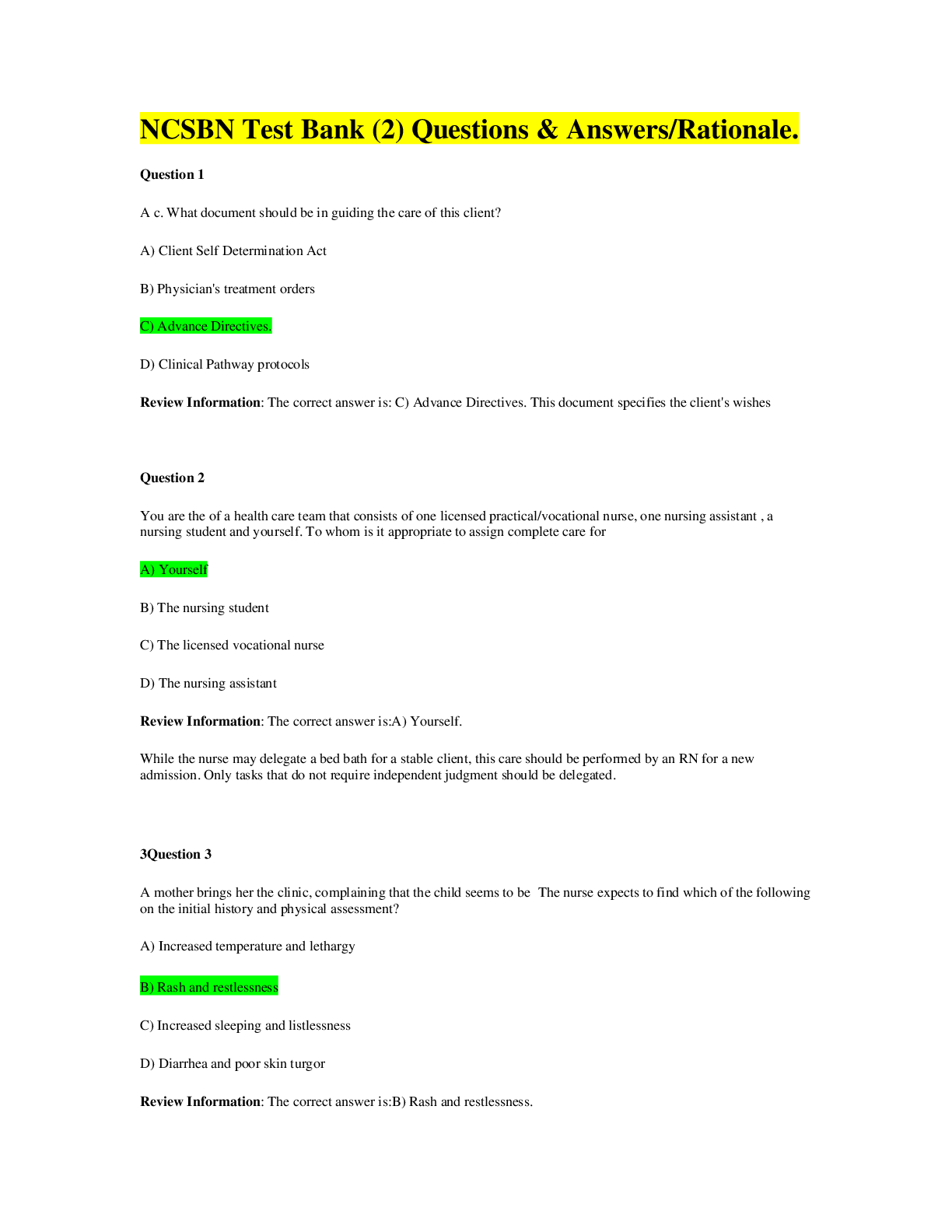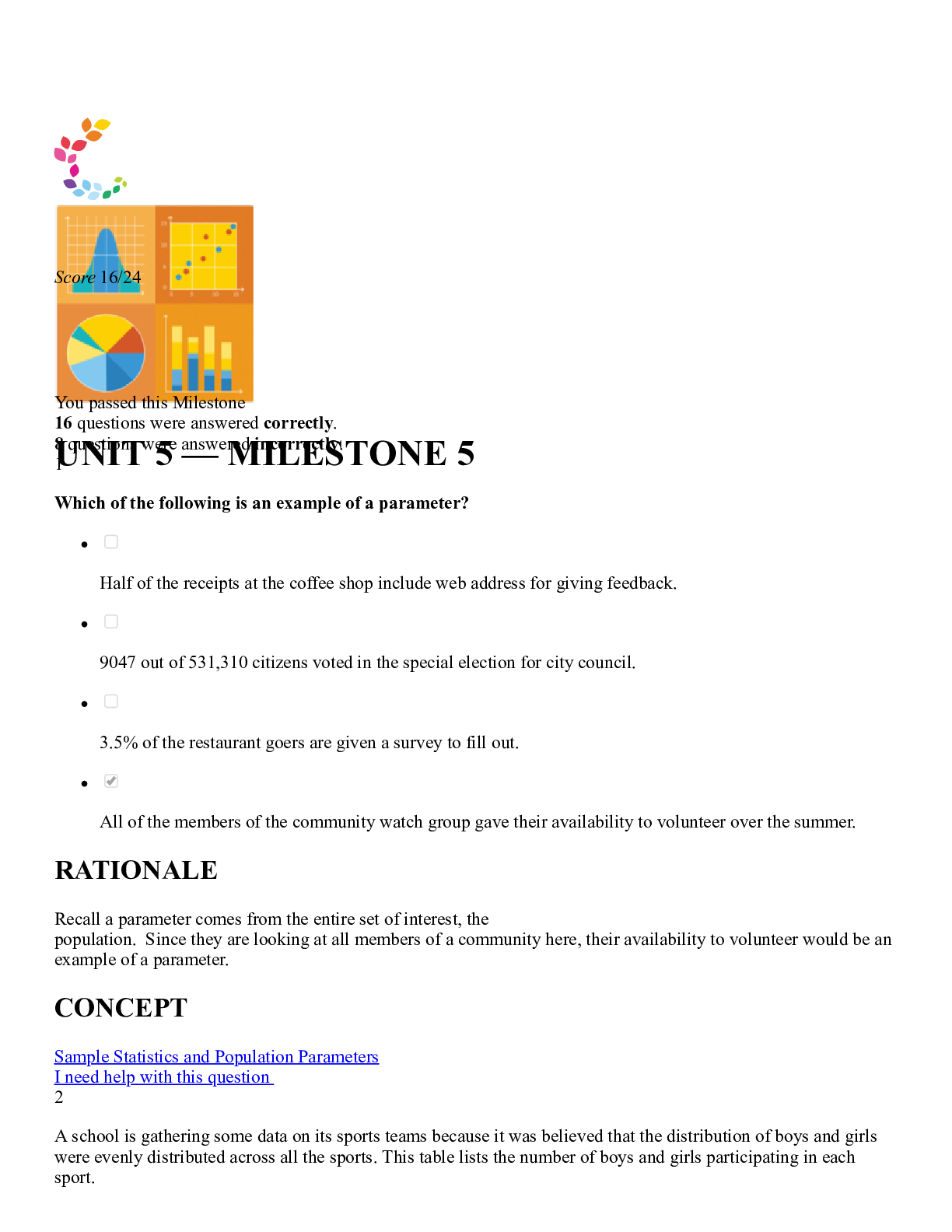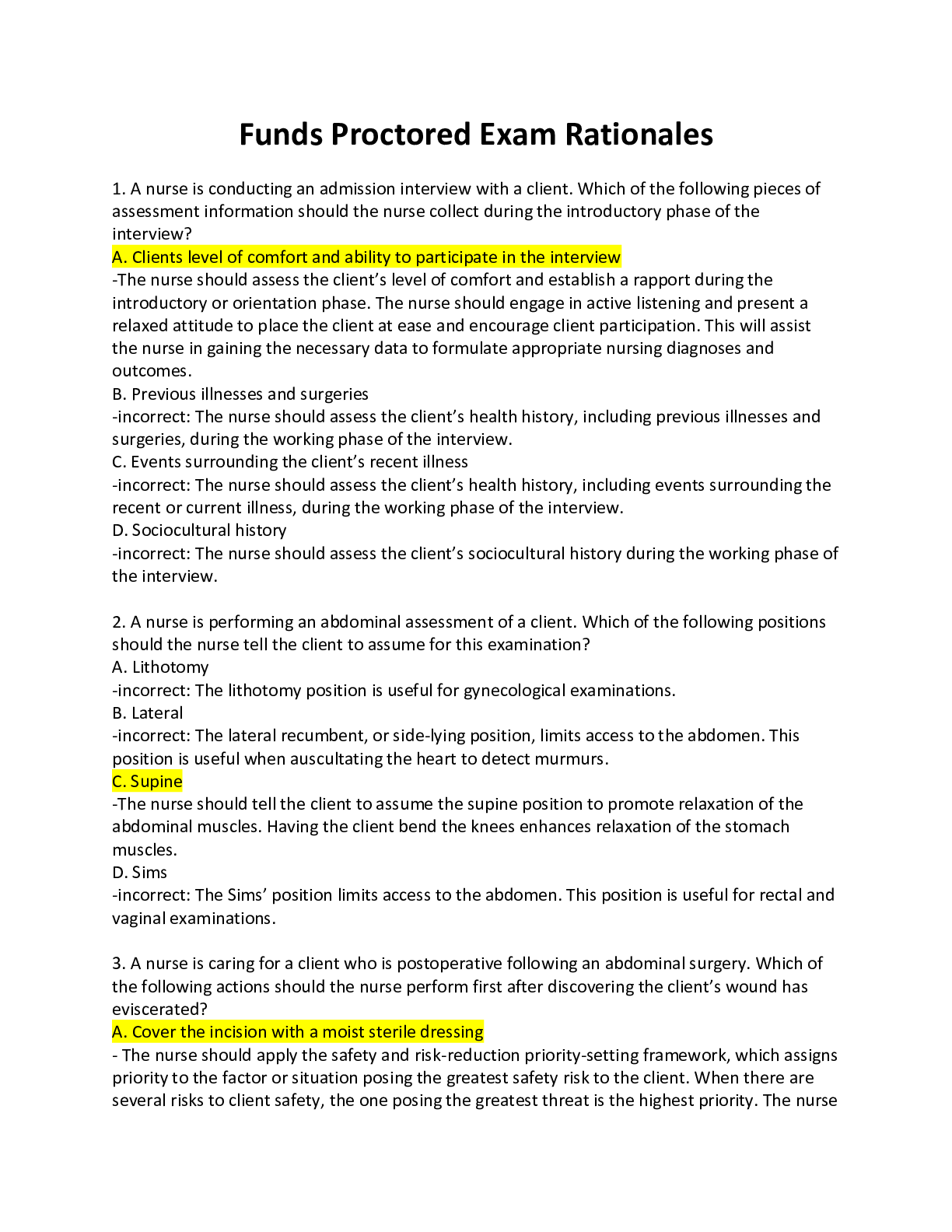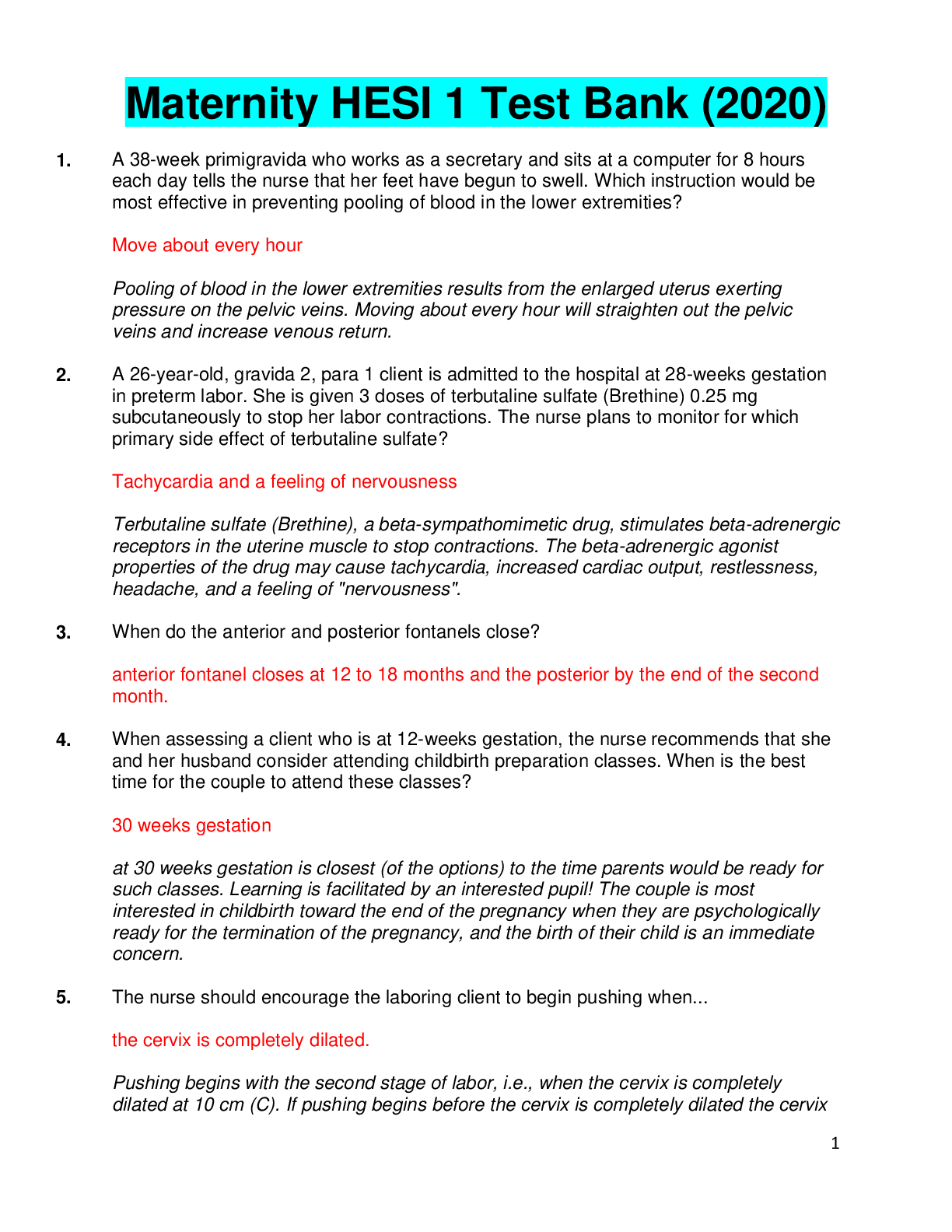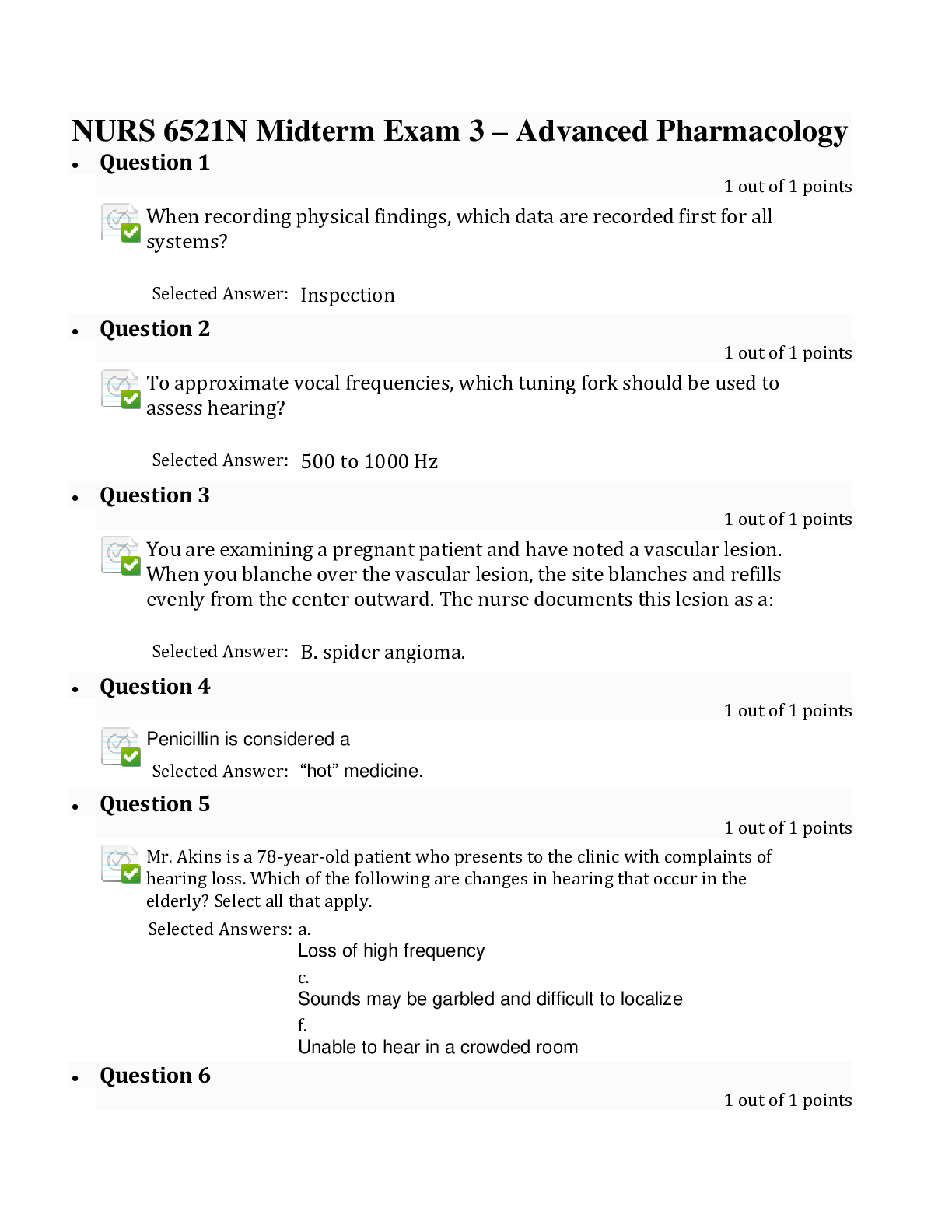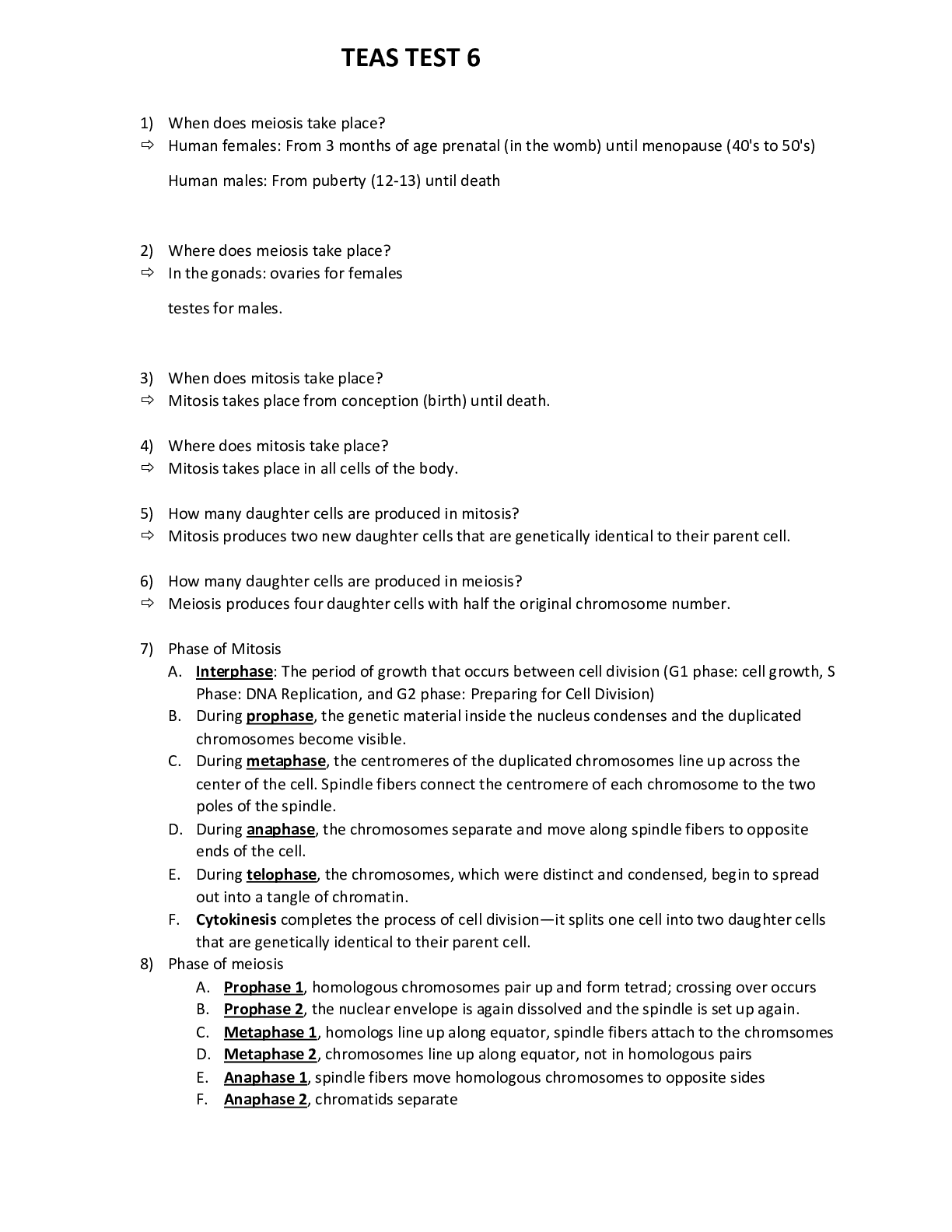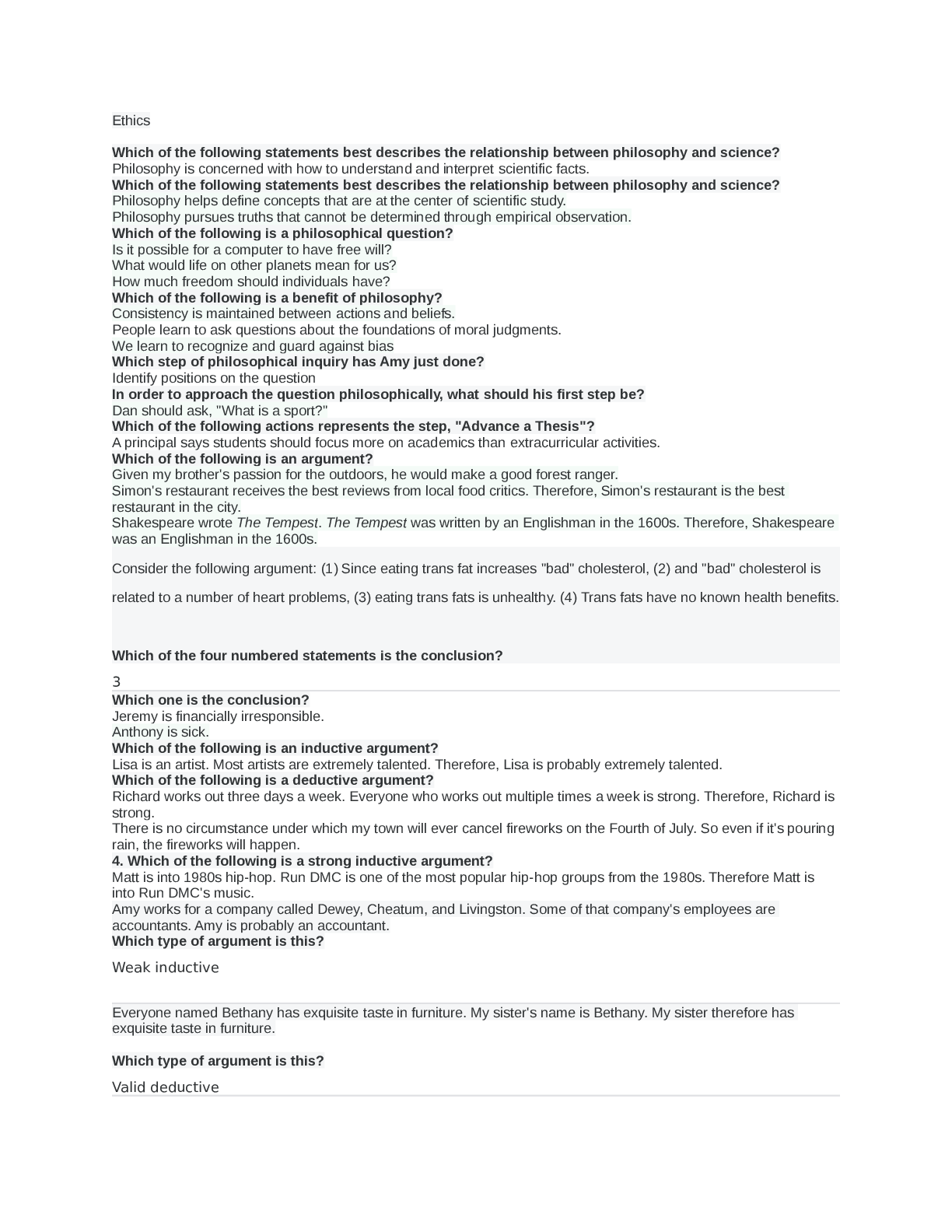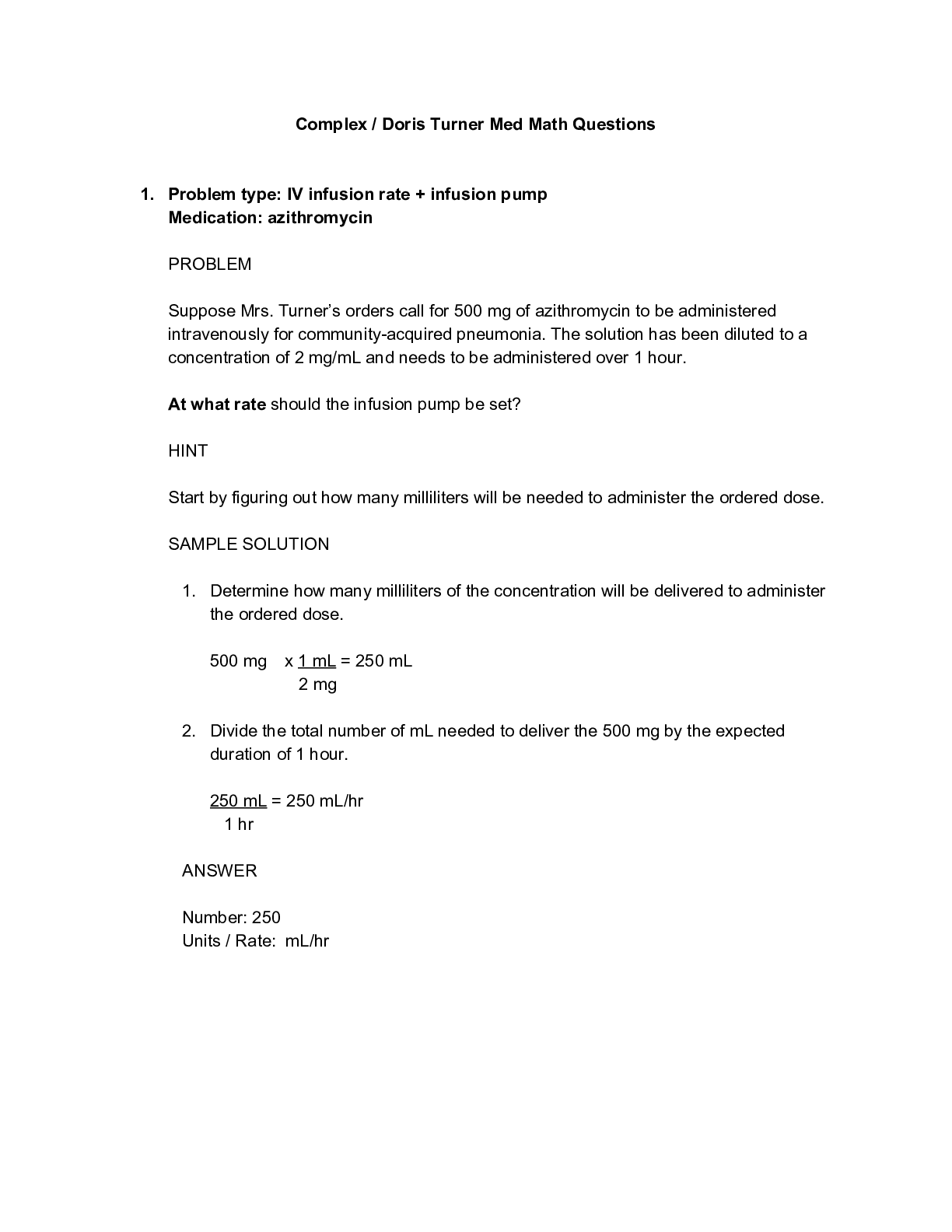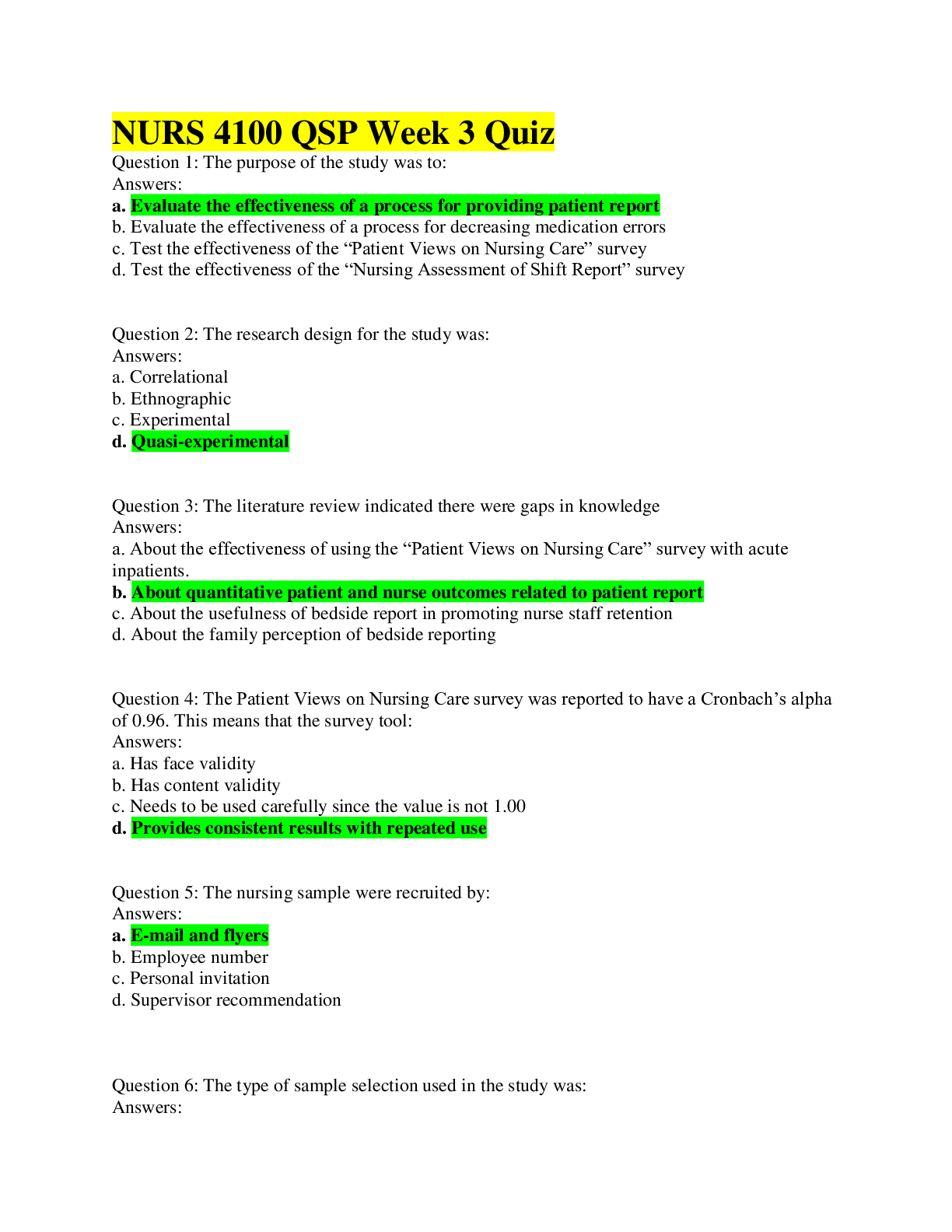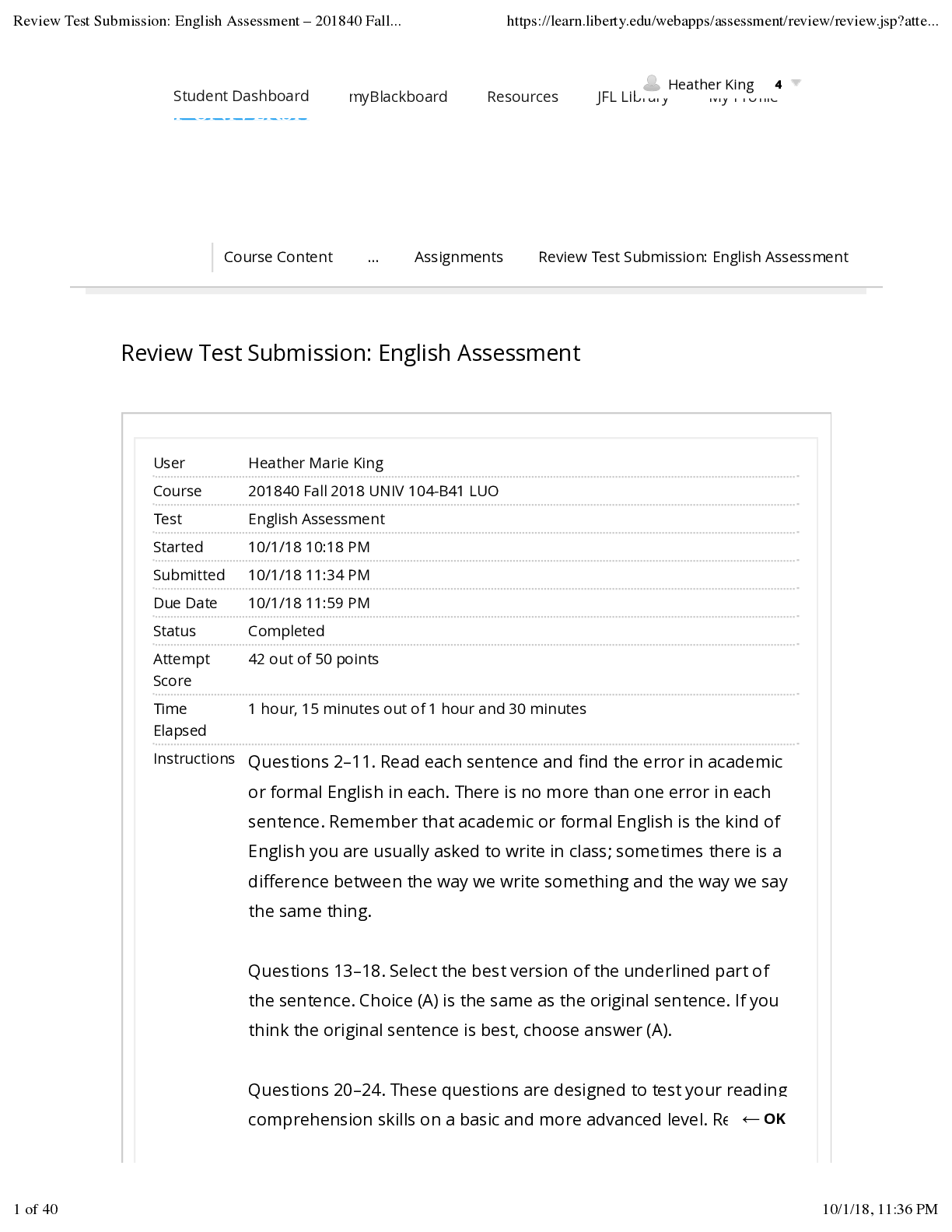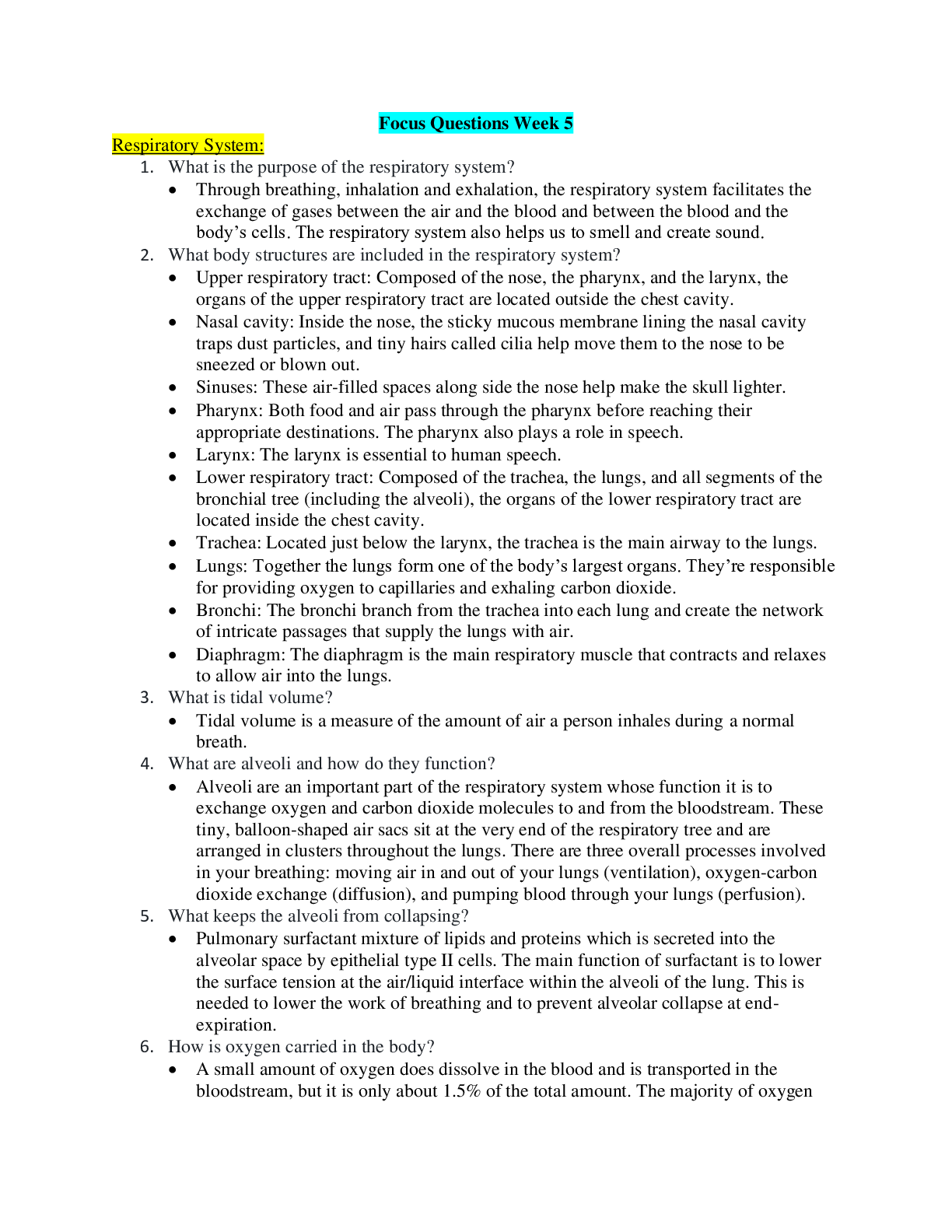*NURSING > QUESTIONS & ANSWERS > MED SURG Focus Questions Week 6 Cardiovascular System:Complete Latest Solution guide. (All)
MED SURG Focus Questions Week 6 Cardiovascular System:Complete Latest Solution guide.
Document Content and Description Below
Focus Questions Week 6 Cardiovascular System: 1. What are the structures of the cardiovascular system? 2. How is the heart divided? 3. How does the heart contract? 4. What is systole and diastole... ? 5. What is stroke volume and cardiac output? 6. What is the difference between arteries, veins, and capillaries? 7. How does the nervous system regulate the cardiovascular system? 8. What is blood pressure? 9. What is the difference between systolic and diastolic blood pressure? 10. What is systemic vascular resistance (SVR)? 11. What is mean arterial pressure (MAP)? 12. How is the cardiovascular system different in geriatric patients? 13. How do you assess the cardiovascular system (subjective and objective)? 14. What diagnostics are used to assess the cardiovascular system? Hypertension: 1. What is hypertension? 2. What is the main cause of hypertension (pathology)? 3. What are factors that contribute to hypertension (modifiable vs. non-modifiable risks)? 4. What are the signs and symptoms of hypertension that is controlled (compensated)? 5. What are the signs and symptoms of hypertension that is not controlled? 6. What are the complications of uncontrolled hypertension? 7. How is hypertension diagnosed and what are the treatments? 8. What is hypertensive crisis (emergency vs. urgency)? 9. How do you know a patient is having hypertensive urgency vs. hypertensive emergency? 10. What is the most common cause of hypertensive crisis? 11. How do you treat for hypertensive urgency and hypertensive emergency? Coronary Artery Disease: 1. What is coronary artery disease? 2. What non-modifiable and modifiable risk factors contribute to CAD? 3. What are the signs/symptoms of CAD? 4. How do you treat CAD? Myocardial Infarction: 1. What is a myocardial infarction? 2. What causes an MI? 3. What are the signs/symptoms of an MI? 4. How are MI’s diagnosed? 5. How do you treat an MI? • Treatment of an MI includes medications such as aspirin, thrombolytics, antiplatelet agents, pain relievers, nitroglycerin, beta blockers, and ACE inhibitors. If medications do not work, then surgeries such as a coronary angioplasty and stenting procedure or a coronary artery bypass surgery may occur. Cerebrovascular Attack: 1. What is a cerebrovascular attack? 2. What causes a CVA? 3. What is the difference between an ischemic and hemorrhagic CVA? 4. What are the signs/symptoms of a CVA? 5. How are CVA’s diagnosed? 6. How do you treat an ischemic CVA? 7. How do you treat a hemorrhagic CVA? [Show More]
Last updated: 1 year ago
Preview 1 out of 6 pages
Instant download
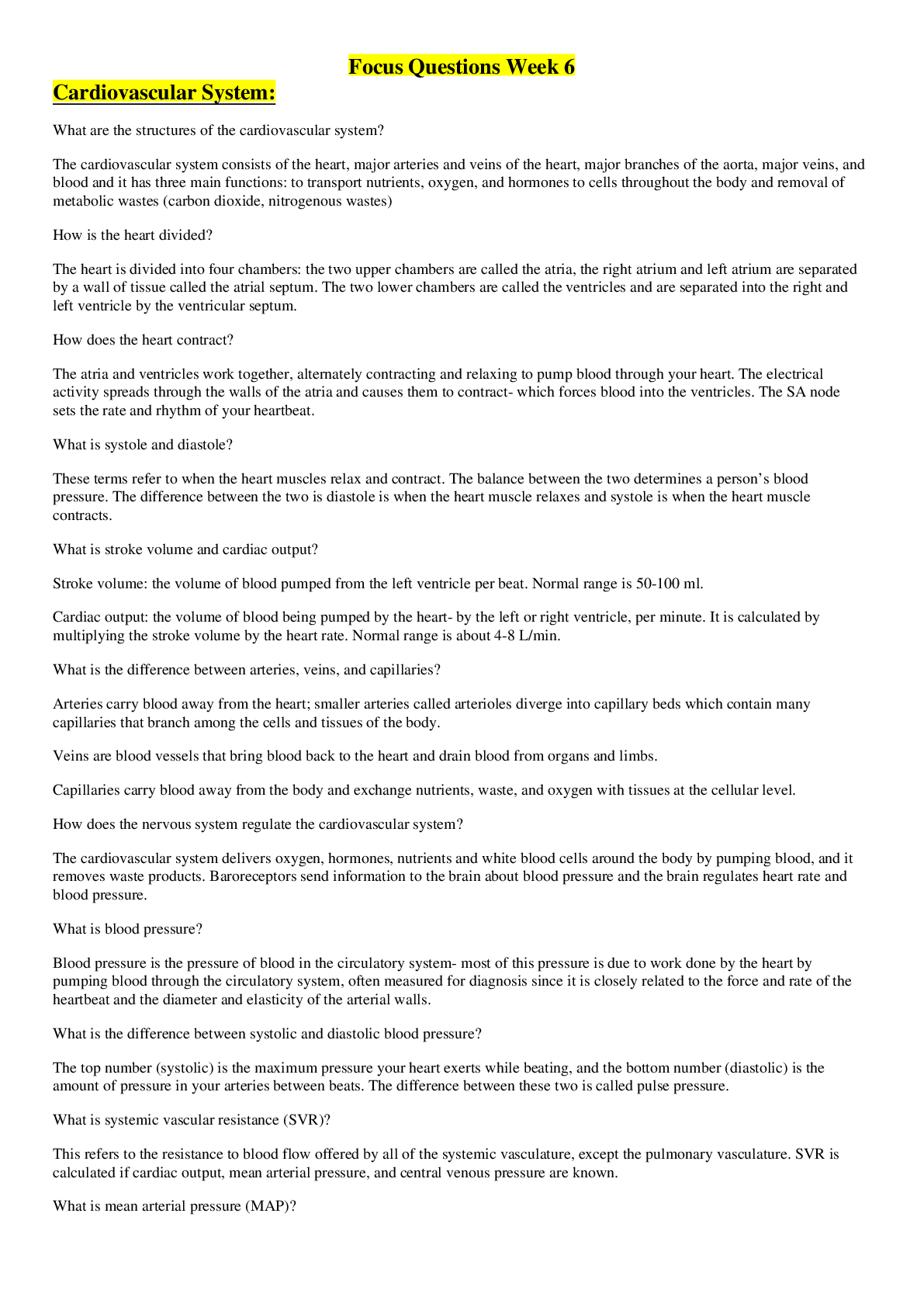
Buy this document to get the full access instantly
Instant Download Access after purchase
Add to cartInstant download
Reviews( 0 )
Document information
Connected school, study & course
About the document
Uploaded On
Jun 02, 2020
Number of pages
6
Written in
Additional information
This document has been written for:
Uploaded
Jun 02, 2020
Downloads
0
Views
377

.png)
